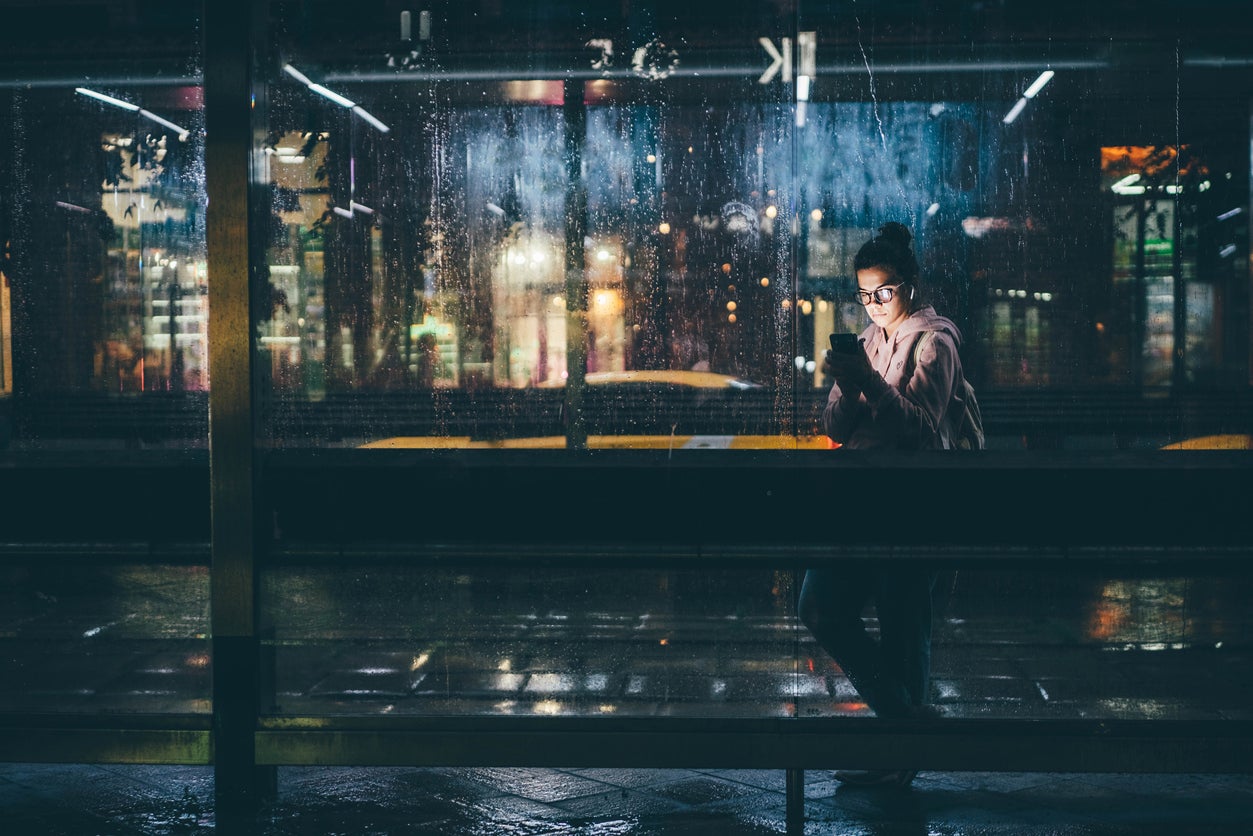Fewer women taking taxis home at night despite safety fears due to cost of living crisis
Over 60 per cent of women walk home more often despite fearing for their safety

More women are walking home at night instead of getting a taxi despite safety concerns due to the cost of living crisis, a new poll has found.
One in five women said they had made the change as costs rise, with one woman telling The Independent she has been left feeling “terrified for her safety” as a result.
Out of the women surveyed, 61 per cent said they are walking more often and 49 per cent are taking fewer taxis.
It comes as energy bills increase to an average of £2,500 for UK households, inflation rises to a new 40-year high of 9.9 per cent and the prices of goods and services, including transport, reach record-breaking levels.
Momna Nasir, 26, from Ilford, said she often took Ubers at night before the cost of living crisis.
“Now, I tend to get a bus, a ride from a family or I walk on well-known roads to me where I presume no one would bother me,” she said.
“With the cost of living crisis, I go out less to my evening dance classes, I don’t have the money to socialise as much as I used to and most definitely have not been taking taxis because I can’t afford to anymore.”
Ms Nasir said she worries for her safety when walking home in her local area and is often reminded of the murder of Zara Aleena, 35, who was killed just 10 minutes away from her home in Ilford.
“I live in a false bubble thinking ‘this is my local area, I’ll be fine’ but knowing Zara Aleena was murdered when coming home from work nearby makes me feel like I will be another statistic at some point.
“Just the other day, I left my friend’s house which is 10 minutes away from mine and I was inches away from being hit by a reckless driver, whose passengers laughed and swore at me when he was in the wrong and intentionally drove towards me just to scare me. You just don’t expect to be in danger so close to home.”
Liz Yeates, a gardener from Leicester, also said she took taxis often before the cost of living crisis took hold.
The 44-year-old said: “For a long time, I took local taxis regularly but with the cost-of-living crisis, I’m going out a lot less and when I do go out, I’m restricted to when buses are running so I’m leaving a lot earlier and drinking a lot less if at all.”
The study, which surveyed 1,700 people on 6 and 7 September and was commissioned by Budweiser and safety app WalkSafe+, found that almost two-thirds (63 per cent) of women were likely to plan their route home before heading out.
“It restricts my activity and even though drinking less isn’t necessarily a bad thing, I would have preferred to have made that decision on my own and not because of money or safety,” she added. “I’m also bad at judging risks and this can be worse when I’m drunk, especially as an autistic woman who’s often masking things due to internalised ableism.
“By that I mean people have expectations of others when in public, so I often don’t act fully myself and I’ve found that as people feel the pinch more, they behave differently and are a bit more miserable and less friendly, so I’m more conscious of how people perceive me as someone who is disabled.
“Regarding judging risks, there was a case a little while ago when I was on the bus and I saw a bloke intimidating a woman on the other end of the bus, so I stepped in and said something,” she continued.
“Then, I realised I had to get off at the same bus stop as him and I was still a little way away from my house. A few years ago, that probably wouldn’t have happened as I would have been able to get a taxi more affordably.”
Hajer, 29, from north London, says the cost of living crisis has greatly affected her social life and journeys home.
“Now that days are shorter and darkness is fast approaching, I’m even more terrified for my safety. I’m jittery when travelling alone even up the high street, and there have been times where I I know the option I’m taking isn’t the safest but it will save me £40 on a taxi,” she said.
Subscribe to Independent Premium to bookmark this article
Want to bookmark your favourite articles and stories to read or reference later? Start your Independent Premium subscription today.

Join our commenting forum
Join thought-provoking conversations, follow other Independent readers and see their replies